|
Contributed by: Lalya Wyatt The Australian Department of Health emphasised that mental health is critical to our well-being. Virtual gatherings, events, and training programs have become increasingly popular ways to support mental health and maintain social connections during these challenging times. "Virtual gatherings and events have become a lifeline for many individuals during these challenging times, providing a safe and supportive environment for maintaining social connections and supporting mental health. Training programs can also be crucial in building mental complexity and developing new tools for navigating life,” says virtual events extraordinaire Shaun Stephens at Loghic Connect. In this article, we'll explore the mental health benefits of virtual gatherings and events and how training programs can help individuals build cognitive complexity. Virtual meetings and events offer many mental health benefits, including the following: 1. Maintaining Social Connections
2. Reducing Stress And AnxietyVirtual gatherings and events offer a safe and comfortable environment where individuals can connect with others without the added stress of leaving their homes. This can be particularly helpful for individuals who experience anxiety or stress related to social situations or travelling. Additionally, these virtual events can provide an excellent opportunity for those with introverted tendencies to participate at their own pace and engage more confidently in social interactions. By offering a more controlled and less overwhelming environment, virtual events allow these individuals to relax and engage in activities that promote relaxation, stress reduction, and a sense of social connection. 3. Providing A Sense Of Community Virtual gatherings and events can create community and belonging by transcending geographical boundaries and cultural differences. One of the significant benefits of these global virtual events is the opportunity to interact with people from different cultures and countries without the need to leave your home or office. For example, imagine participating in a leadership course alongside a manager from Dubai, a leader from Poland, a coach from Sweden, and a leader from Melbourne, all hailing from different industries. This diverse environment fosters a rich learning experience, as participants can gain insights and perspectives from various cultural backgrounds, enhancing their understanding of global issues and promoting cross-cultural communication skills. 4. Learning New Skills Virtual events (such as conferences and summits) and training programs allow us to learn new skills and expand our knowledge alongside diverse people from different backgrounds and cultures. This can help individuals build mental complexity and develop new tools to navigate life. Learning new skills can also promote a sense of accomplishment and self-esteem, improving mental health and well-being. Another significant advantage of virtual events is the ability to fit your learning into your lifestyle without travelling to a specific location. This flexibility makes education and personal development more accessible, allowing individuals to balance their personal and professional commitments while pursuing growth and development opportunities. This adaptability can lead to reduced stress and greater control over one's life, further promoting mental health and well-being. 5. Building Mental Complexity Mental complexity involves seeing multiple perspectives and understanding the complexities of different situations. It consists in having a flexible mindset and adapting to changing circumstances. Mental complexity is essential for navigating life and can be developed through training programs. Virtual events and training programs can provide tools and strategies for managing stress and anxiety, improving mental resilience, and building mental complexity. These skills can be applied to various situations, including work, relationships, and personal growth. Unlock Your Social Potential: Develop Mental Complexity For Success At Work And Life With Blue Chip Minds
Virtual gatherings and events offer many mental health benefits, including maintaining social connections, reducing stress and anxiety, and providing community. Training programs can help individuals build mental complexity and develop new tools for navigating life. Investing in these programs can help individuals take control of their mental health and well-being and build resilience for the future. Blue Chip Minds offers programs that educate leaders + individuals on the latest scientific discoveries about human potential and the human condition. At Blue Chip Minds, we understand the importance of mental health and well-being. That's why we offer programs with a blended delivery of face to face or virtual such as Life Reloaded, Superior Thinkers Toolbox, and Future Ready Leaders Toolkit to help you discover your unused potential. Contact us today for more information. Do you find yourself pulled between your personal desires or responsibilities and doing what needs to be done for your business or career? In the early 2000’s while managing over one hundred and fifty staff spread across more than forty-one thousand square kilometers, (without Zoom or MS Teams) I was introduced to the concept of work life balance, and I began instilling the idea with the team. It sounded like a great theory at the time, especially with early mornings and late evenings after driving from location to location to visit team members. But with hindsight and knowledge backed by personal experience I came to understand that to obtain true work life balance, a 50/50 split, was not only impossible but trying to achieve it was creating unnecessary stress… kinda defeating the purpose. In the world we woke up in today, things are vastly different than twenty years ago, we can access work from personal devices, and connect with team members across multiple time-zones with the click of a mouse and more of us are choosing to work from home making it so much easier for our focus to be hijacked by less important and often trivial distractions. This can have a detrimental flow on effect on our productivity, relationships and performance as we unconsciously relegate the things that matter the most to the ‘I’ll get to that later’ list. In the leadership programs we run, there is a fun and often tormenting activity we do where participants are forced to let go of the things they believe are important to them in order to get to what really matters most… One by one we witness managers and leaders letting go of their gym memberships, their barista brewed coffee, their nightly glass of wine, their entertainment subscriptions, their hobbies, and even personal freedom is sacrificed as they narrow down to the one thing that matters most to them. Do you know what 98% of participants declare as their most important thing, what they couldn’t live without? It’s Family! If you find yourself doing things that are not important, or chipping away at outdated processes, maintaining unproductive habits that take you further and further away from what matters most to you or heck, you may still be trying to achieve the impossible 50/50 work life balance, you know, feeling guilty at home on the days when work needs to be a priority and thinking you’re in the wrong, or your reputation will be ruined, when personal and family commitments impact your work. It doesn’t have to be this way, you can equip yourself with cutting edge tools to help you navigate the demands of the day, increase productivity, and focus on what matters. I know it can be painful doing things that are not working for us and at the same time not having the knowledge to push back confidently and intelligently on the things that negatively impact our well-being, relationships, goals, values, and time. Before learning or sharpening the tools that will help you do more of what matters… you may want to first understand the 6 most widely experienced derailers I see people from all walks of life struggle with. After 20+ years of diving into the fields of human potential, mindset and neurobiology and psychology combined with 1000’s of hours coaching I noticed common traps we all unwittingly fall into when it comes to getting to the things we really want to do or spending time with the people that matter most. If you are like me and want good results, I have no doubt that you know that to achieve results and perform at our best we need to be confident in our decisions, efficient in our thinking and productive with our time. This is easier said than done because no matter how hard we try to be productive and do what matters, there always seems to be people, situations, notifications, and that pesky inner voice that have the potential to distract and derail us. Derailer #1 - The People Pleaser What I have noticed both within myself in the past, and with coaching clients is the first issue we face. To put it simply, we want to please everyone. Being a people pleaser and not being able to say no effectively leads to doing things not aligned to our goals or doing things to keep other people happy or maintain an unhealthy peace. Derailer #2 - Wired to Avoid Change The second derailer comes from our neurobiology - we are wired to avoid uncertainty. This innate need to feel safe can slow down or even prevent decisions from being made. This leads to procrastination because we’re afraid to make a start or do things differently. We end up fighting against anything that takes us away from homeostasis, clinging to how things are or how things were, wired to stay in the safety of an outdated way of being. Derailer #3 - Unhealthy Habits We can look to biology to understand the third derailer. Derailer number three is our unhealthy well-being habits draining us of the energy we need to get things done. Our energy is derived from the type of food we eat, how much we move, and the quality of our sleep. These are all important factors that impact energy levels and our ability to do what matters, often giving preference to an easy task (think Netflix, gossiping or social scrolling) to match our low energy levels. Derailer #4 - Misaligned Identity The fourth derailer is a psychological one. When our subconscious identity is not aligned to the work we need to do we will unconsciously sabotage our efforts. When who we assume and believe we are is not aligned to who we need to be to get the work done we end up going in circles often reverting to our old ways. If you want to dive a little deeper into the power of your self-image, grab copies of Gay Hendricks book ‘The Big Leap', Chip and Dan heaths Book 'Switch' or Maxwell Maltz book ‘Psycho Cybernetics’. The deeply held beliefs you hold about yourself create a protective system that can sometimes lead to us sabotaging our efforts to focus on what really matters. Derailer #5 - Unsupportive Environment The fifth derailer is an environmental one. You can't be productive if your physical, social, or mental environments are unsupportive. To set yourself up for success in this area be sure to create an uncluttered space dedicated to the work that needs to be done. Ensure that you are socially supported by engaging in a coach or buddy to cheer you on and hold you accountable to delivering on your objectives. It is equally important that you create a supportive mental environment by choosing narratives that support your outcomes such as telling yourself things like:
In essence you’re giving yourself a pep talk to override any beliefs that suggest you don’t have the time, energy, or capacity. Remember: Your mental attitude will always influence you output. Derailer #6 - Distractions And sixth most common thing that derails us is distractions, and wow… the world certainly has turned up the volume on distractions and shiny objects, stealing our attention away from what’s important. Distractions big or small such as noise, notifications, interruptions from other people or pets, regularly checking emails or your phone. Anything that takes you away from what you are doing are the biggest derailers of productivity. These unwanted intrusions on our time slowly eat away at any hope we may have of consciously integrating our work with our life. Believe it or not distractions are the easiest to fix when you know how to set boundaries for yourself and for others. If you'd like some easy fixes to help you deal with distractions grab yourself a copy of Nir Eyal’s book ‘Indistractible’ Getting Back On Track What’s interesting about these six common derailers is that we can overcome all of them by overcoming the first one. Once we know how to say no in an enlightened way, we begin to help ourselves and others to let go of the things that no longer serve us and to focus on what’s important. We can set boundaries for ourselves to create healthy well-being habits, we can set clear limits and expectations as to the person that we want to become, we can say no to the things in our environment that get in the way of our best performance, and we can deliberately put measures in place to ensure we are not distracted from what matters most moment to moment. It’s up to you to get yourself on track and more importantly, stay there. The tools are available in books, podcasts, and courses. The first step is to determine what really matters to you, what’s your priority in any given moment then check to see which of the derailers are present. We know that knowledge alone doesn’t do a darn thing, so if you want support to kick any of your bad habits, outdated self-beliefs or fixed mindset to the curb… I’m opening up my diary to 6 people who are yet to experience Blue Chip Minds Coaching and who want to get back on track to join me for some complimentary 1:1 time in a 30min get me back on track session. So… what stops you most often?
Drop me a line, I’d love to hear what derails you and how you plan to get back on track. Here’s to you doing more of what matters. Contributed by Georgia Ellis I know it's hard right now balancing commercial goals with the well-being and growth of your people and somehow you did it! It is an absolute honour to work with business leaders and decision makers who not only realise that that their people must come first, above the customer and the shareholder, but they take inspired action towards making it a reality for their organisation. I often wonder how many organisations expect their tired, wired and depleted team to show up and be the best for each other and their customers, especially when they have not been able to invest in themselves first. How can a person truly connect, influence and shine for a business if at first, they can't shine for themselves? I love the challenge of working with you to help you serve your people in a way that has never been done before. I love that you knew there was a better and different way to invest in your team and when we shared our approach it resonated deeply with you, and you took immediate action to get started. I now realise you had been searching for unique and proven ways to serve your people and the business at the same time, and here we are :) I love that you generously invest in your people’s personal growth, professional development and wellbeing, to help them thrive in life so that in their thriving your workplace becomes a hive of positive and profitable activity. I admire the work you do and your bigger vision as a business to truly make the world a better place with your products and services. Instead of playing the short and finite game, your organisation plays the long and infinite game where everyone wins including your customers, clients, team members, shareholders, stakeholders, vendors and the world we share. I am forever grateful that you found us and that we have worked together to create solutions to meet your unique needs. It is a delight working with you all, most importantly and above all, we love your team, your leaders and all the people who participate in our programs, they show up, play full out and in doing so they become better humans. Together your organisation gets to meet your goals and Blue Chip Minds gets to meet ours. I admire that you listened to that deeper knowing that went against convention, you sensed and truly believed that you have to, need to, and want to do more for your people. Your commitment to building self-awareness, helping people think differently and providing a wider lens for them to see challenges in a new light and providing them with the tools to thrive… not just at work…. but in life, is a massive paradigm shift as to how organisations approached their workforce in the past. It’s because of you that I have faith in the future of humanity and big business. Your leaders have shown that they are ready to lead in a multidimensional way and now they have the tools to do it, helping your organisation to become a human centered commercially minded workforce. I can’t say I’ve ever felt this way about a business client, and not sure if it’s good for business to say this out loud, but to hell with convention right! I have to say it. I Love You! I'm thankful that we are aligned and our work together is profitable and beneficial for everyone! Thank you for reaching out. Thank you for being a modern-day Robin Hood and showing up for your people.
Thank you for caring - together we can help to make the world a better place. In gratitude Georgia + The BCM Team. Contributed by Caterina Viterale Reframing responsibility to help organisations, teams and individuals be better humans Until recently, I have had a tug-of-war like relationship with the idea of responsibility for as long as I can remember. This recent shift felt like I was handed a key to a new understanding that nested in my mind and then expanded to create a form of internal freedom. As if handed down by the magical powers that be directly into my awareness, I was offered a unique and transformative way to reshape how I look at, and understand, responsibility beyond what I had thought previously, which was always associated with a role, title or position. I now consider this a framework, a concept, a potential mapping of sorts, for how we can navigate ourselves and each other through the terrain of modern living and all of its complexities, and in this article I will be sharing it with you. So, grab yourself a glass of your favourite beverage, sit back and let’s go on a little meditative and contemplative ride of curiosity and wonder together about how we can potentially reshape how, and what, we think when it comes to responsibility. ContextResponsibility, for a very significant amount of my 32 years of life, has been an extremely heavy, yet liberating, topic and experience for me. On a personal level, it’s been extremely burdening. On a professional level, I have always thrived with some form of weight on my shoulders – a team to manage, a goal to hit, something to organise, pieces to put together. Recognising why I have these two experiences of the same topic was something I really struggled to understand and master. Why was I exceptional at managing a team, being a good leader, and exceeding professional goals, but I could barely manage my personal life? Why was it different? I couldn’t figure it out because the weight of my personal responsibility was too heavy for me to be able to look up, look around, and see things differently. Then, one day, a few months ago whilst meditating, an entirely new way of looking at responsibility came to and through me, right when I was no longer looking to understand it. And this is what I will share with you. The New UnderstandingResponsibility. Response-ability. “The application of one’s ability to provide an appropriate response to any moment or situation, whereby one has, or is perceived to have, something that is of benefit to someone or something, including themselves”. Sheesh. Good, right? Let’s highlight the many important, and specific, elements to provide us with the guidelines for putting this into practice, and break down this new way of thinking about response-ability. Application: because the rest of the definition becomes completely useless if we do not APPLY it. Simples. Ability: ability for humans is never one dimensional. It is both within and between the elements of physical, emotional and mental that we may or may not actually be able to do something. I may know you have the intellectual capacity to fulfil a task based on past experience, but not know that you’re physically unable to do so in this moment because you’re exhausted from lack of sleep as your new born child is unwell. Or because you’ve started seeing a therapist about that childhood trauma no one knows about and it’s emotionally and physically exhausting you. We may have assumptions about someone (colleague, friend, partner, parent, employee, neighbour, person at the checkout) with regards to their ability to fulfil a task, without considering the infinite number of factors that contribute to one’s ability to do so, even if it appears, they are, in fact, able to do so on face value. This is where the co-founder of the Flow Genome Project Jamie Wheal’s ‘Playground Rules’ provides a handy rule to live by: #2 “Benefit of the Doubt (Everyone's Doing Their Best!)” Appropriate: This is about emphasising whether or not we have consciously assessed the situation and considered the response we are about to make is, in fact, as appropriate as we can assess it to be. This requires a certain level of mental development and complexity - specifically the utilisation of a particular mental faculty, ‘perspective’. How many perspectives outside of our own have we considered in our analysis of an appropriate response? What internal space is this analysis coming from? Are we angry, tired, hungry (or hangry), overly excited, focused on one perspective? Does it feel rather cerebral, meaning, are we just thinking about it intellectually, or are we allowing for things such as empathy and compassion to enter our consideration of what’s appropriate? The findings of our internal investigation provide important reflections and considerations for how we may expand what we consider appropriate. Response: without getting into technicalities of dictionary meanings, I feel the significance of response is that, in embodied practice, it is very grounded. It is clear, open, attentive. It is a state of assessing as much available information as possible whilst knowing that even in this state we are unable to know absolutely everything. Thus, remaining open to the information we receive as a unique opportunity to add to our knowledge base. I want to emphasise also what it is not, and more specifically what it isn’t in comparison to a reaction. Typically, when using ‘reaction’ in conversation, there is an assumption that the reaction was a direct and immutable outcome as a result of a specific cause that is often emotionally explosive; it’s automated and without control or influence. This is definitely not what I feel a response to be. Response seeks to find the causation(s) of the present moment, assesses it in as many ways as it seems appropriate that is the most expansive and inclusive, then consciously CHOOSES an outcome. A moment or situation: this brings the mind’s attention, and the practical application of this response-ability principle, to the here and now (whatever present moment we find ourselves in). Not yesterday, not tomorrow, not in five minutes time, nor the previous encounters with this person/s in the environment we are in. It’s the here and now, which requires a specific state of mind that has the ability to absorb it for what it is, and not what it has been previously or what we anticipate it to be. Has, or is perceived to have: sometimes we know what we have, and sometimes we need others to provide the information to bring it to our attention. This is particularly useful in times when we forget that we have a skill, resource or piece of information that is so automatic in our existence that we forget we have it. Take speaking our native language as an example. Most people use it so frequently and have become so acquainted with its existence and use that they forget that it is, in fact, a skill that could be used to help others – a foreigner, a blind person who is unable to read/see something, or even as a means to voice an injustice/issue that requires attention. Something: it’s important to remember that something isn’t always an object – it can be an idea, a word, a resource, and in fact, something can even be a nothing. The thing that you may be able to provide as an appropriate response is, well, absolutely nothing (silence, for example, when listening to someone share their story). Benefit: most often, we are used to considering benefit as strictly on the positive side of the negative to positive spectrum. It is important to note, however, that benefit may also include an outcome where there is a reduction in the negative, thus, moving the indicator within the spectrum closer to the positive side and away from the extreme negative side. Someone, or something: we live on a planet, that doesn’t just have people. It has objects, other living organisms, constructs, ideas, beliefs, houses and e-v-e-r-y-t-h-i-n-g else that exists outside of our present here and now. Therefore, it isn’t just about responding to people within a moment or situation, it is also guiding us towards paying attention to, and considering the benefit of, e-v-e-r-y single thing that exists. Including ourselves: well, because, most of us just don’t think of ourselves, especially when it comes to responsibility! It’s often housed in the environment of others – our roles and duties to others and things outside of ourselves. This can create an array of negative consequences. From illness, to stress, to poor health, poor sleep, no money, poor relationships, minimal joy, and everything else that you can think of when you take a moment to reflect on all the ways you’ve neglected yourself – your body, your wants and needs, your desires, your feelings and emotions, your experiences. Now that we’ve delved a bit deeper into the elements of this alternative perspective of response-ability, let’s ask a really important question. Why is this even important?If we consider many of the issues we face globally, much of it stems from a lack of response-ability. Ask yourself: “How many times have I seen someone (including myself) dismiss an idea or action - a response – when something clearly needed to be done?” For example, a task at work that wasn’t part of your “job title/duties” so you ignored it; a conversation you avoided having about something that needed addressing but was put off and the issue became far greater than it needed to be. The list goes on. And when we collectively leave a large amount of small things unchecked or ignored, they build to HUGE mountains of things that suddenly seem too overwhelming. I mean, just take a look at the news over the last year, where do we begin? Racism? Global warming? Women’s rights? Trans rights? Education? Health? Pollution? Where? More deeply, if we consider the global social, economical, political and environmental landscape, a significant portion of it involves us needing to pick up the pieces of other people’s lack of response-ability - we are constantly having to utilise our time, energy and resources rectifying the consequences of others behaviour, decisions and actions, as opposed to showing up in the world and living a life that is full of richness and the freedom to create playfully. We are devoting the one resource that we have always known to be finite and irreversible in the physical plane – time – to resolving issues as a result of a lack of response-ability of our fellow humans in the past, instead of basking in the playfulness of existence itself. And, sometimes there’s no stronger blockage than a perception of finite time that limits our ability to be conscious and aware in our actions. This is an important segue into an often ignored, yet extremely influential element that can dramatically impact one’s ability to practice response-ability. Burdened people burden people.Photo by Ben White We’ve all heard the common phrase: ‘hurt people hurt people’, but when do we consider the reality that often, burdened people burden people? Think about the Manager who is overworked, stressed out, and feeling overwhelmed by the disproportionate ratio of their skills to the tasks required of them by those above (and sometimes, below) and so unfairly demands more from those they manage and increases their workload? The single parent, working their asses off (or are unable to), struggling to overcome a past trauma and so demands more from their child, intentionally or unintentionally? The person in a position of power who is burdened by a personal situation, who comes to work carrying that weight into a decision-making process, and then chooses the less personally consequential option that has an increased workload on others, as opposed to the harder, but more appropriate, option? What happens in all of these situations? The person burdened, begins to unwittingly burden those around them. Whether by having to take on tasks, or holding space for them to react to their stresses (as opposed to processing their emotions in a healthy manner), the weight gets distributed to others who are already carrying the burden of the people and environments they’ve previously been in. And so the burdened becomes the burdener. When we’re burdened, we cannot perform optimally, and at our best; we cannot give to ourselves, each other and the here and now moment we find ourselves in. Essentially, we cannot be response-able.So, what can we do?
2. Remember that during times of emotional, physical and/or mental internal imbalance, people are not at their best, and therefore, we need to recognise the inability of the other person to provide what we believe to be an appropriate response. A potential tool for these moments would be to become curious and ask the person we are about to request something from, “what is your current energetic, emotional, and physical capacity?” We could even go so far as to ask them to rate their levels out of 10 or 100, and if used in a team environment, whoever has the highest score may be able to take the reins for a moment to allow others to regain their equilibrium. 3. Use the description of ‘response-ability’ as a principle to live by, outside of roles, duties, status and labels – let’s perceive it as a guiding principle. The InvitationHere are nine ideas I invite you to consider to help make the shift from responsibility to response-ability a little more easier collectively. 1. It’s a paradox that we must develop in to We must both let go of, and embrace, the past and future in helping us navigate the now. In the context of providing an appropriate response, we must clear ourselves of the past conditioning and future assumptions that blind us to providing an appropriate response, whilst also utilising past knowledge and holding future ideas and plans to help us navigate the situation to the most appropriate and beneficial outcome. This can be challenging for some, as it requires a high level of mental complexity that many of us are not yet capable of, or are still developing into. Therefore, we must consider this a journey towards response-ability mastery on both an individual and collective level due to the navigation towards, and transformation to, living this as a guiding principle. Developing self awareness through mindfulness practices such as meditation can assist us in the optimisation of processing throughout the here and now and maximise the ease at which we can practice this principle fully. 2. We’re all going to be students, and teachers No one is a master at this, nor will they be. Every moment we are growing, evolving and changing, as is everything else that exists, and therefore, there will always be more to learn, to adapt to and to consider. What’s that playground rule again we need to follow? “Benefit of the Doubt (Everyone's Doing Their Best!)” 3. It’s never going to be 100% There’s ALWAYS going to be some form of “problem”. This perspective isn’t about solving and eradicating all of the tension in the world, it’s about limiting the amount of unnecessary realities we’re creating that require subsequent solutions - the burdened burdening others included. We must ensure our thinking going forward is built upon a foundation of knowing there is no final and complete utopian destination. 4. Try to refrain from worrying about over there, focus on your here Until your ‘here’ is functioning optimally and beneficially, refrain from utilising your valuable energy, time and resources on the “over there” situations – trust that they are being dealt with by those there, experiencing their own here and now within it and utilising these same principles. Make sure your house is in check first, then go out and help others optimise theirs. 5. There’s no reason not to play and have fun This piece was written deliberately with a hint of playfulness to provide a glimpse of the light-heartedness that we can bring to the spaces we occupy. It may feel as though we have a big job to do – personally, professionally or collectively as a human race - but if we bring an element of play and child-like wonder, we can get the job done in a much faster and cohesive manner. Maybe we can start asking ourselves “how can I make this a more enjoyable process?” 6. Trust ourselves, each other and the bigger picture – all of which we know very little about The greatest of minds have always proclaimed that the more they know, the more they know not. Let’s take that piece of advice on face value and act accordingly. 7. We have a choice Response-ability is a tool we can use to help us CREATE the world we want to live in – it gives us agency, sovereignty and conscious engagement, and not simply be a passer-by in this great adventure that is life as a human on this planet. Let’s CHOOSE to be the person/s we want to see in the world. 8. Not everyone is as keen as you are When we think something is important, we forget, or simply fail to consider, that whilst we are having an experience right now of something having our focused attention, so too are the people around us who we are interacting with. We must remember that no matter how important or significant we feel and believe, or even know, a thing that is requiring our attention is, we must accept and forgive those who cannot give us the energy, focus and attention we may want or need. 9. Response-ability is always a 100% game If you are conscious, and in a body that is able to move with conscious engagement, then you are 100% responsible for your response-ability - remember, existence equals responsibility. No situation is about breaking down who contributed what percentage of 100% of the outcome. It’s about taking personal accountability for our own actions, choices, and behaviours (including what we do not do), and recognising that we are 100% responsible for the contribution we made in any given moment. We shift our focus and analysis from “they did A, B and C!” (usually blame) to “what did I do here?” (self empowerment and mastery). ConclusionThe more I think about this, the more I feel there’s so much to say, develop and find clarity on how the actual practical application of such a framework fits across our lived experiences.
Though, essentially, I think it can be summed up by being more considerate of others and the environments we find ourselves in, and shifting our focus and attention from other people’s choices, actions and behaviours to our own. If we at least start from there, I trust the magnificence of who we are on a fundamental level - kindness, compassion, openness, curiosity, playfulness, joyfulness - will help us find our way. In March 2020, life started to feel a little funky, and not in the cool hip, bluesy kind of way, more of a holy almighty what has just happened to the world as I knew it kind of panic funk, and I’m certain I wasn’t the only one feeling this heavy uneasy feeling. Retrospect is a wonderful thing and six months on, I am grateful for all the knowledge and practices I had leading up to the occurrence of this global funk. I was able to navigate out of it, with a quick journey up to a higher perspective, noticing what was contributing to my personal experience of what was going on in the world, taking stock of what I could control, and then taking decisive action and maintaining practices that would allow me to weather this unrelenting onslaught of confusion. Taking decisive action and maintaining practices that would allow me to weather this unrelenting onslaught of confusion. There are many tools and ideas that I called on during this time, but the one I believe that served me the most was an idea I was introduced to in 2004 as part of a Leadership program I had attended. The idea was simple; I could either choose to approach life from one of two narratives, that of a person who has mastery over their life or one who has adopted a victim mentality. I recall having to list all the traits of a victim and a master. Upon reflection, I promptly decided that Mastering my life was where it was all a. So began the long and never-ending path to Mastery of Self, I began doing my best to model my life on being a person who took full responsibility for their outcomes, I began reflecting and adapting behaviours along the way. This was a game changer for me, I was letting go of allowing external forces such as relationships, the economy, managers or any situation outside of my control define who I was and how I felt, I was determined to dive into the depths of my being to see what I was really made of, oh and for what it’s worth, I am still doing that! Years later I would come across two other frameworks that expanded on these Victim / Master narratives. I was introduced to two new roles that keep us in a state of Funk and two additional roles that would allow me to show up as a better human to those I was sharing life with, move beyond the ongoing cycle of uncertainty and victim hood. Enter ‘The Drama Triangle’ (Stephen Karpmen) and ‘The Empowerment Dynamic’ (David Emerald). These ideas took me from looking at how I showed up for myself in life and introduced me to the roles I (and you) play in every human interaction and in every situation. I now had a detailed brief of the games we all unwittingly play together. The ongoing narratives we shift between that keeps us, and as we are experiencing on a global scale, the world in the funk of Drama and the roles we can choose to step into, to finally lift that funk. Roles that keep us in the Funk. The three roles in Karpman’s Drama Triangle are Victim, Rescuer & Persecutor.
Freeing yourself from the Funk, requires a shift from reacting in a situation to choosing to pause and consciously respond to life’s events. When you practice responding, you take yourself out of the situation and are better equipped to observe your behaviours. David Emerald ‘s book “The Empowerment Dynamic” provides alternatives to playing in the dysfunctional Drama Triangle. You can move from showing up as a Victim, Persecutor or Rescuer to interacting in a positive and empowering way. With curiosity and compassion, you can move from being a rescuer to a supporter, from a persecutor to a challenger and from being a Victim of Circumstances to Self-Authoring and creating your life. Freed From The Funk “In order to change an existing paradigm you do not struggle to try and change the problematic model. You create a new model and make the old one obsolete.” - Buckminster Fuller Using the wisdom of Buckminster Fuller you can switch out the Drama roles by creating new mental models that would look like this.
You will notice a clear difference between the roles, the roles trapped in drama keep everyone stagnant, angry, anxious and frustrated. While the empowering roles facilitate growth, and physical, mental and emotional well being. It takes moments to read about these roles, however it takes a lifetime of application to master the empowering behaviours that will free you from the funk. As you reflect on life right now, this perpetual funk that most find themselves in, ask yourself, am I keeping myself here, am I dancing around with my friends and family in Drama or are we empowering ourselves and those we care about to take responsibility and self-author our way to greater agency? I want to leave you with this quote by Jim Rohn as food for thought and to inspire you to no longer being the victim to what is happening in the world we share, but to choose to take responsibility and create circumstances that turn the Funk into Funky (in a bluesy kind of way) “You must take personal responsibility. You cannot change the circumstances, the seasons, or the wind, but you can change yourself. That is something you have charge of.” - Jim Rohn Let's dance!
Georgia The Life Reloaded and Future Ready Leadership programs run by Blue Chip Minds dive deep into these models and much more to help you to stop dabbling in Drama and begin to reclaim your personal agency. Contributor: Georgia Ellis Back in 2013 after leaving my Senior Manager Role behind and stepping into a new version of myself as a Business Owner, I took a trip to Iceland. The icy and snowy landscape was not only epic, but it also provided a timely reminder of the cortical landscape of our brains. Kinda a weird connection to make, but stay with me...
As I took in the landscape I couldn't help but see a resemblance to a Human brain and the way our continual thinking carves out new and unique neural pathways, it occurred to me that as en employee I had been thinking a certain way, which had led me to have a rather successful career... but that thinking, and those neural pathways, were not going to serve me as a business owner. Fast forward to 2019, and with a deeper understanding of neurobiology and the interconnection of our thoughts, emotions and movement. I now appreciate the power of post conventional and complex thinking and the importance or rewiring our brain to steer us in a new direction... partly because of the science, and partly because it's exactly what I did to grow my business. I worked on my mindset first. In the book "The Biology of Belief" by Dr. Bruce Lipton, he explains how our thoughts and beliefs impact our biology. Did you know if you continuously think thoughts with a negative bias about life or the future, that is tell yourself woeful stories or make negative judgements of a situation or person, that you create a neural pathway in your Brain that hooks you up to seeing only the negative? Just like crevices in the snow that have been carved out by a sled taking the same path over time, those continual thoughts create a deep seeded negative bias. When you begin to understand neurobiology and neuroscience and even epigentics, you quickly discover that we can retrain our brains to “steer our sled” on to a new path with a positive outlook, then that pathway will show a physical change in our brains. Neuroplasticity means that our brains are continually firing and wiring new pathways, the more we think a thought, the stronger the connection or pathway, the less we think a thought, the weaker the pathway and eventually it prunes away. Each one of our thoughts and subsequent behaviors are responsible for this change in our brains. It's an empowering idea that we can literally begin to prepare ourselves for these extraordinary, complex and uncertain times with the nature of our thoughts. Not only does a switch in thinking help prepare us for the future, it has other profound effects on us physically and can even help reverse anxiety and depression. Research has shown that regular positive pole thinking can lead to:
Unfortunately negative pole thinking produces the opposite results. Take the point above about being more attractive to other people, I most certainly are turned off by negative people. The best thing about being in control of our thoughts is that we have a new opportunity each moment to enhance our emotional experience. I discovered many years ago that we always have a choice as to how we respond to situations, events and people. Armed with the knowledge that a positive attitude to life is worth nurturing, and that we can steer ourselves onto a different pathway on our habitual cortical landscape, then we can begin to work on strategies to make this happen for ourselves. Some strategies that I have found helpful for steering my thinking into a better future are:
The more I adopted these practices the easier it was to have a positive mindset. My cortical landscape was changing, and i began to naturally steer myself in a positive direction. Changing the way I thought about things, changed the emotional attachment i had with people and situations. I moved from being the victim to the external world to being the master of my inner world, which strangely, changed the way I saw the external events that used to trigger mental anguish. People who know me somehow think I have always had a positive outlook, the truth is I haven't, I had to teach myself and I am still a work in progress, with the know-how and tools to steer my thinking back on track towards an extraordinary future. |
Authors
Our Contributors are a mix of passionate and switched on Humans ready to share their, career, business, well-being, leadership and performance insights with you so you can be the architect of your own extraordinary future! Archives
May 2024
Categories
All
|
Global professional development solutions for individuals and organisations.
Working with Individuals and organisations in;
Australia | Singapore | Hong Kong | United States | India | United Kingdom | Dubai | China | Poland
Malaysia | New Zealand | Japan | Belgium | Austria | South Africa | Brazil | Canada
Working with Individuals and organisations in;
Australia | Singapore | Hong Kong | United States | India | United Kingdom | Dubai | China | Poland
Malaysia | New Zealand | Japan | Belgium | Austria | South Africa | Brazil | Canada
|
We acknowledge the Traditional Custodians of the land on which we live, work, meet and play. This most often is the Wurundjeri people. We pay our respects to Elders past, present and emerging of the Kulin Nation. We extend gratitude and respect to Aboriginal and Torres Strait Islander peoples and global indigenous cultures for their incredible wisdom, resilience, deep connection to the natural environment and their deeply transformative spiritual practices.
We have so much more to learn from you. |
Copyright © All Rights Reserved BLUE CHIP MINDS 2013 - 2021

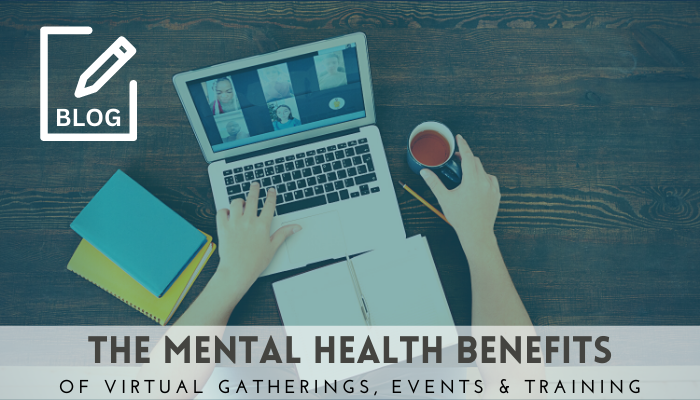

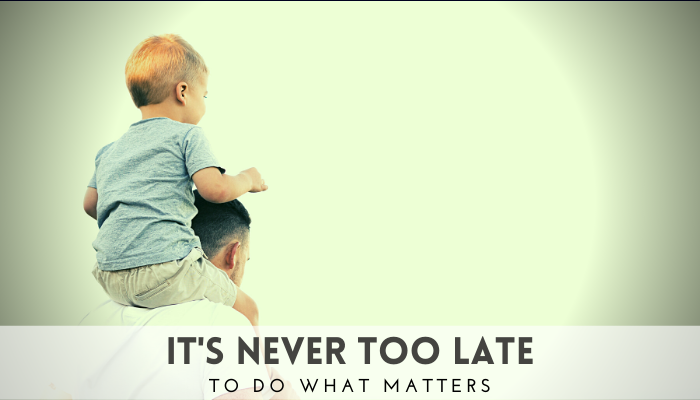
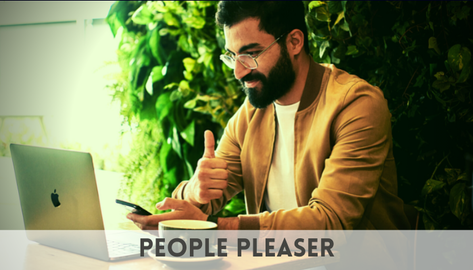
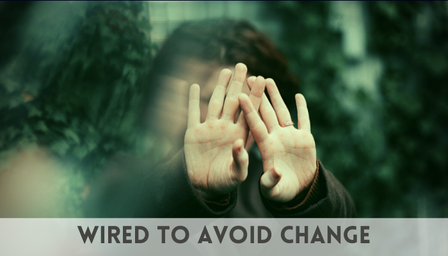

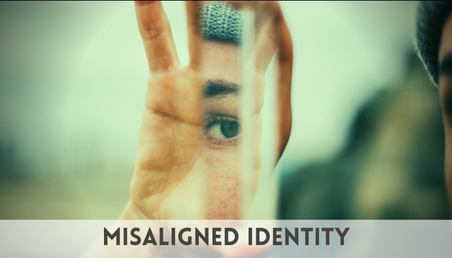
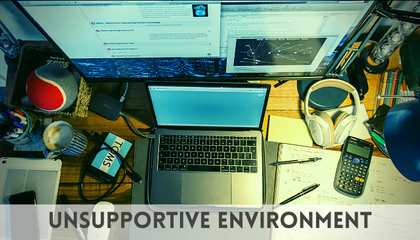
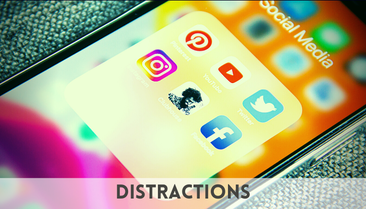

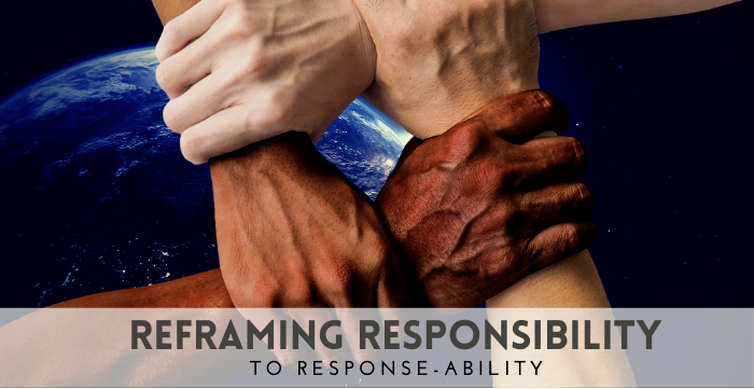

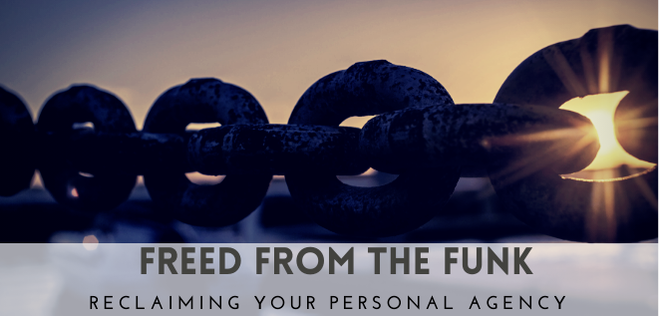
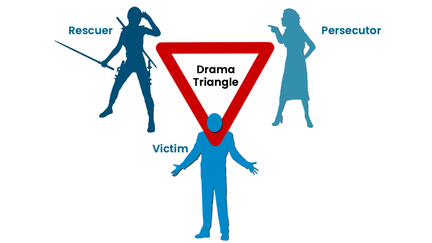
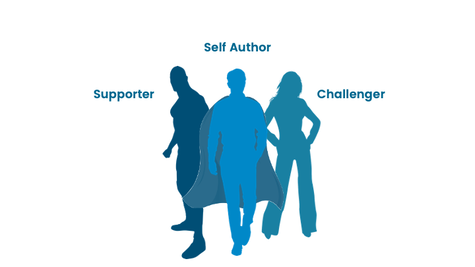

 RSS Feed
RSS Feed
